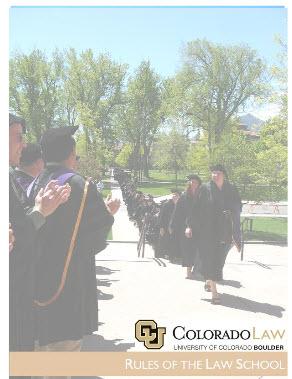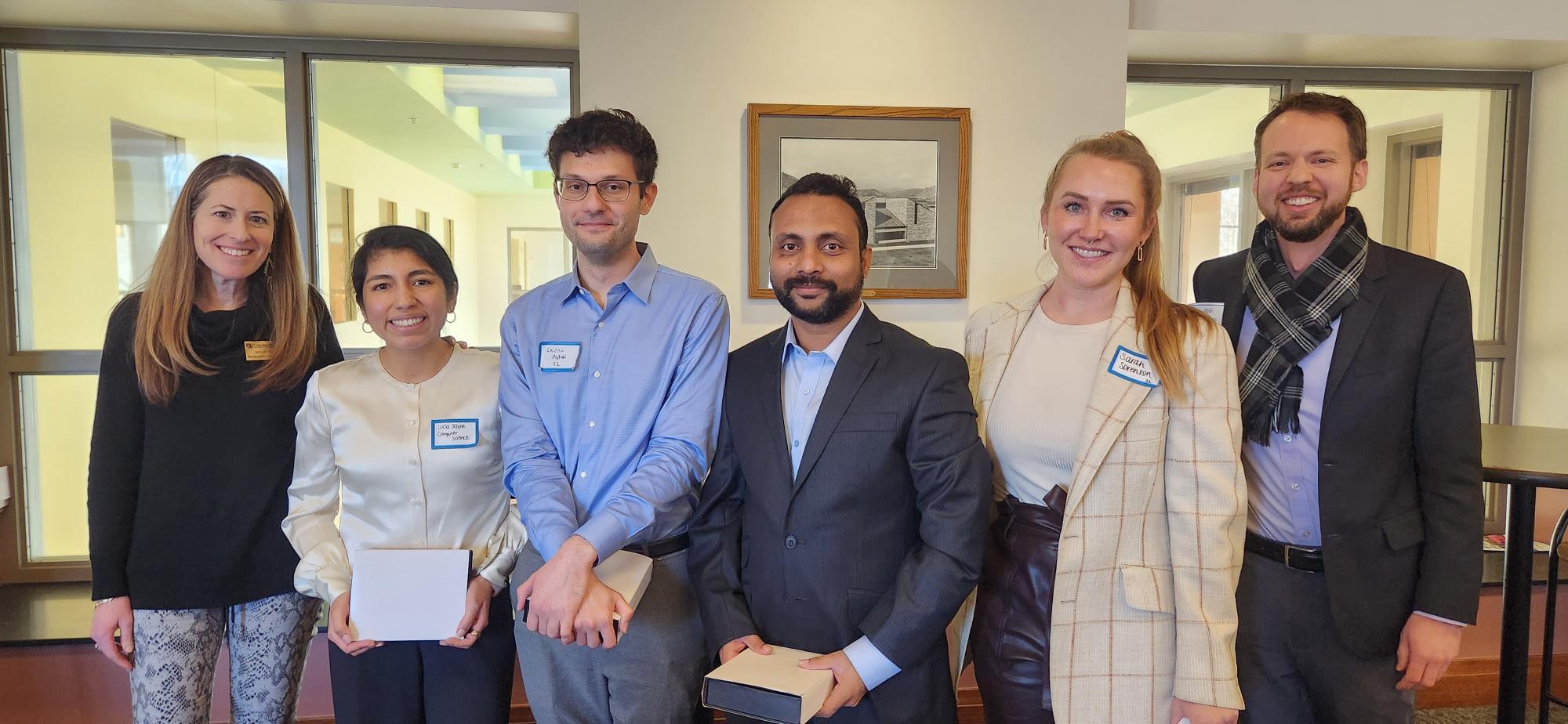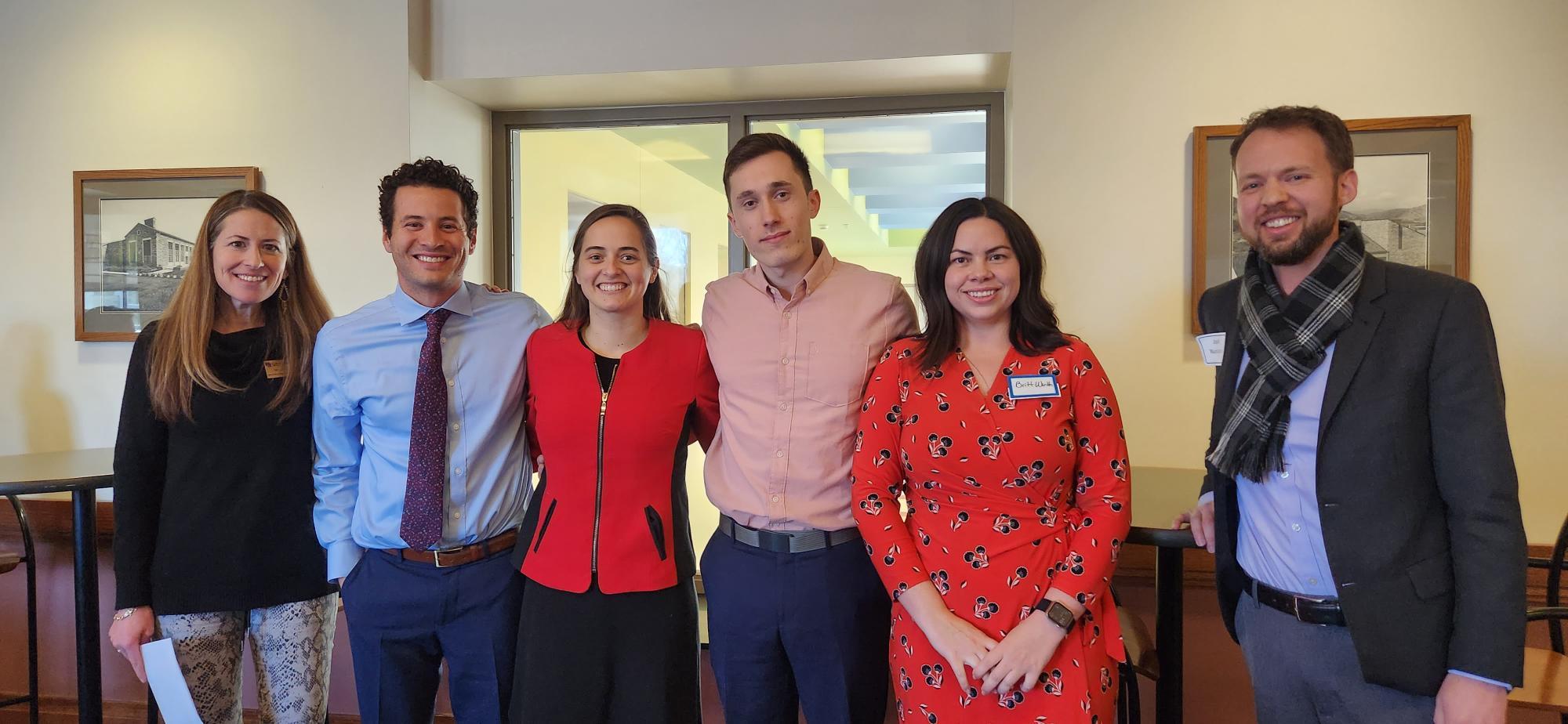Interdisciplinary Ethics Tech Competition
The most recent Interdisciplinary Ethics Tech Competition was held on Feb. 1, 2025. The event was a huge success! Please consider joining us in 2026!
Event Summary
Held annually, the Interdisciplinary Ethics Tech Competition gives students a chance to wrestle with a real-world ethics problem in collaboration with a diverse team of students studying law, business, communication, journalism, engineering, ITP, information science, or computer science. Past case problems have featured a tech company grappling with ethical obligations related to its facial expression recognition product, and an online platform's efforts to address the challenges presented by "fake news."
The competition provides students with the unique opportunity to work as part of an interdisciplinary team on a problem involving ethical, legal, business, technology, and privacy issues similar to what they are likely to encounter after graduation. This hands-on learning experience prepares students to collaborate effectively across disciplines in their careers, and positions students to be ethical members of business management teams.
Who May Participate
The competition is open to graduate students at the University of Colorado Boulder studying any relevant discipline, including law, business, communication, journalism, engineering, philosophy, ITP, information science, or computer science.
Event Format
Participants are assigned to a team comprised of 3-5 students representing different areas of study to maximize the breadth of each team's knowledge and expertise.
Teams are given the case problem approximately two weeks before the competition date. In the process of researching the problem and preparing a response, team members may meet as many times as they choose and may consult with outside professionals. Students prepare both a live presentation and a short, written executive summary of their recommendations.
On the day of the competition, each team presents its recommendations to panels of judges who are selected for their expertise in the relevant fields.
The five top-scoring teams from the initial rounds advance to the Finals Round, where the finalists give their presentations to a panel of judges, community members, and students in Wittemyer Courtroom. After the final presentations, a networking and awards luncheon is held for competition participants, where the winning teams are announced. Monetary prizes are awarded to the top three highest-scoring teams.
Please click here for a news article that provides a more detail description of the competition.
Highlights from the 2025 Competition
We hosted the ninth annual Interdisciplinary Ethics Tech Competition at Colorado Law on February 1, 2025. Graduate students on nine teams were positioned as hypothetical members of a consulting firm with expertise in business, law, ethics, technology, AI and engineering. The consultants were asked to advise a tech company specializing in autonomous aerial drones equipped with artificial intelligence, computer vision, and advanced facial recognition as the company considered whether to accept an incredibly lucrative - but potentially ethically problematic - proposal from the US Department of Defense for the use of its technology.
The three highest-scoring teams were as follows:
- 1st Place: Sydney Baker (Law, 1L); Dillon Liu (Law, 1L); Anna Rahn (Computer Science)
- 2nd Place: Adam Lipsius (Law, 1L); Jalynn Nicoly (Computer Science); Ella Peterson (Law, 1L); Kyla Plutte (Law, 1L)
- 3rd Place: Nipun Gogineni (Network Engineering); Sarah Hanson (Law, 1L); Caleb Kirk (Law, 1L); Abby Meyer (Law, 2L)
Highlights from the 2024 Competition
The eighth annual Interdisciplinary Ethics Tech Competition was held at Colorado Law on February 3, 2024. Nine teams comprised of students from a range of academic disciplines competed as hypothetical colleagues tasked with advising their company's executive management on how the company should implement artificial intelligence for performance management among the company's U.S. employees. Students identified key issues and risks - ethical, practical, legal, and business-related - associated with using breakthrough AI technology for HR purposes.
The three highest-scoring teams were as follows:
- 1st Place Team: Emilee Calvin (Law); Catie Pursifull (Law); Sabrina Schatz (MENV); Sydney Zirbel (Business)
- 2nd Place Team: Sanam Analouei (Law); Seth Guldin (Business); Emmeline Nettles (International Affairs); Isaac Ogundare (Law); Macarena Villagomez-Tapia (Law)
- 3rd Place Team: Matthew Alexander (Law); Steve Herlihy (Law); Victor Laudano (Law); Jacob Woodford (Law); Alden Zeff (Business)
Highlights from the 2023 Competition
In the 2023 competition, students collaborated to form a hypothetical task force testifying before a Congressional Committee to provide recommendations on how - if at all - the U.S. government should regulate deep fakes. They sought to answer the question: As viewers can no longer tell the difference between real and faked content, how do we draw the line to harness the beneficial aspects of this technology while protecting against harm?
Highlights from the 2022 Competition
In the 2022 competition, nine teams of students submitted video presentations detailing their proposals for a technologically sound contact-tracing program that could be used in the next public health crisis to safeguard public health while respecting individual privacy and balancing business, ethical and legal interests.
Securing the first place prize was the team consisting of: Landon Glover (Law), Austin Hayes (Engineering), Garrett Janney (Law) and Zac Salinger (Business)
Thank you to all of our participants and volunteer judges!

The Interdisciplinary Ethics Tech Competition is co-hosted by the Daniels Fund Ethics Initiative Collegiate Program at Colorado Law, the Collegiate Program at the Leeds School of Business, and the Silicon Flatirons Center for Law, Technology, and Entrepreneurship, in partnership with:
- Department of Computer Science
- Technology, Cybersecurity and Policy (TCP) Program
- College of Engineering and Applied Science
- Department of Information Science






